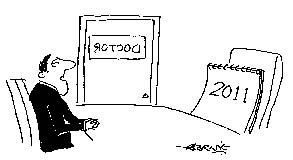Q. Why did God give liberals annoying, whiny voices?
A. So that even the blind could hate them.
Q. Why did God give liberals annoying, whiny voices?
A. So that even the blind could hate them.
This is probably my favourite joke from a new book I just published in the US, (hence the use of ‘liberal’ in its American sense), called 365 Ways To Drive A Liberal Crazy. Though I don’t think it’s quite as funny as the Obama ‘Men Who Stare At Goats’ joke or the one about Nancy Pelosi and the sheep on the desert island, I like it a) because I invented it (or, rather, adapted it from an old Eighties racist joke) and b) because it offends so many liberal pieties.
Not only does it invoke God (in whom no liberals believe these days, not even Christian ones, they having all moved on to Gaia worship instead) but it takes it as read that He is a natural conservative (as indeed He is). And while it’s not necessarily rude about blind people, it does exploit their condition for the purposes of mirth, therefore making it at least to some small degree disablist, politically incorrect, tasteless and offensive. So win, win, win, win, win, win.
Whether the Americans enjoy it as much as I do is anybody’s guess. That’s the problem when writing for an audience which speaks superficially the same language but inhabits a different universe. Just when you think you’re beginning to get the measure of their humour, their ideology and their mores, you’ll innocently blurt out the wrong word and find yourself a character in the US equivalent of an H.M. Bateman cartoon.
Take that lovely word ‘twat’, for example, which in English English is now the kind of mild insult you’d reserve for someone somewhere between a plonker and a spazz. In US English, though, it has very much retained its Chaucerian sense. Over there it’s very nearly as bad as using the full-on ‘C’ word, as I discovered on my last US tour when, after I deployed it in the offices of my US publisher Regnery, my publicist gently chided me for what she called ‘running your mouth’.
She wasn’t trying to make me feel bad. (Most cosmopolitan Americans are used by now to the idea that English people are pathologically potty-mouthed.) She was just trying to point out that maybe this wasn’t the kind of terminology I should use on daytime talk radio. Especially not on the southern and midwestern Christian stations.
Even after two years’ practice, though, I’m still not sure I’ve got it quite right. Superficially, I can sound like I know my stuff: I refer to ‘the House’, rather than ‘the House of Representatives’; I’m capable of making plausibly sneery references to people Americans don’t necessarily expect an Englishman to have heard of, such as Arlen Specter and Keith Olbermann; I know what EPA stands for (more’s the pity); I sort of know what ‘bait and switch’ means (no, actually, that’s a lie: I still don’t). But there remain vast linguistic and sociopolitical areas where I don’t know whether I’m merely being entertainingly edgy, dangerously near-the-knuckle, or full-on off-puttingly offensive.
For example, in one of the nine talk radio interviews I did on the day I’m writing this — they like to work you hard, US publishers — I found myself using the phrase ‘they don’t like it up ’em’. When my host moved the conversation swiftly on without pausing to chortle over my turn of phrase, I couldn’t decide how much to worry. Does the phrase only work if you’re familiar with Dad’s Army? Had he not heard properly? Or had I accidentally deployed the kind of horrifyingly graphic gay slang that doesn’t go down well on midwestern breakfast radio?
Americans are so hard to read. In British caricature, they tend to be brash, vulgar and upfront. In fact, though, while they may be initially more effusive (making a big deal of establishing what your name is, etc) they can often be surprisingly reserved and diffident. Negotiating US culture is not unakin to those terrifying upper-class English house party weekends where the only way you discover you’re persona non grata is that they never invite you back. Yet, as far you were concerned, up until that point it all seemed to have been going so terribly well.
Possibly, though, it’s because we Brits don’t know where the boundaries of decency lie that the Americans find us so perversely attractive. This is certainly true in print journalism. Look at Mark Steyn (all right, he’s Canadian but he did go to King Edward’s, Birmingham); look at Christopher Hitchens. Then try wading through the aching worthiness and politesse and feigned sweet reasonableness of what passes for quality US journalism, and you begin to understand our appeal. Probably similar to the kind of appeal hairy Norse invaders had to convent-confined 9th-century East Anglian virgins.
Then again, perhaps one shouldn’t make too many generalisations about a nation of 306 million. While it’s true that Americans are more polite and reserved than we are, you only have to look at something like Fox News to appreciate that the opposite is also true. I love Fox and not just because I want Glenn Beck’s job or because the female presenters are all gratuitously blonde and hot, but because it has a rugged honesty entirely missing from dismally over-regulated British TV.
Bien-pensants like to cite Fox News as proof of how brash and vulgar America really is. I disagree. I think it’s a sign of how much more politically mature America is. Unlike Big Brother Britain, it has the sense to realise that the best defence against bias in broadcasting is not government regulation laying down in laborious detail just how fair and balanced it should be. It’s the channel changer — and the off button.







Comments